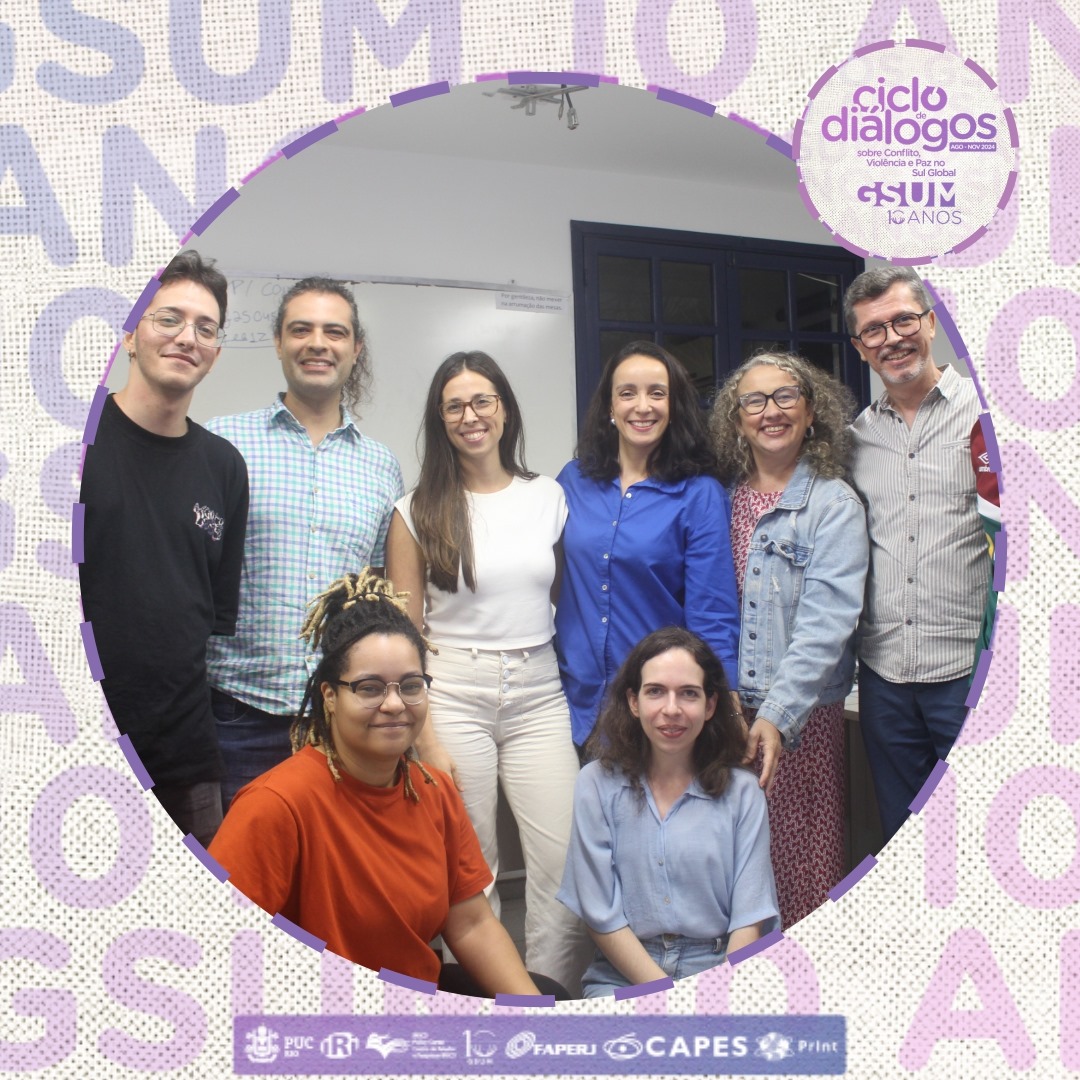
The Global South Unit for Mediation (GSUM), of the Institute of International Relations at PUC-Rio, held a panel entitled “Post-colonial hierarchies in conflict and violence studies: a look at ‘systems of conflict’”.
On Friday, October 18, from 4pm to 6pm, the Global South Unit for Mediation (GSUM), of the Institute of International Relations at PUC-Rio, held a panel entitled “Post-colonial hierarchies in conflict and violence studies: a look at ‘systems of conflict’”. The activity, mediated by Prof. Dr. Maíra Siman, was the third meeting of the Cycle of Dialogues on Conflict, Violence and Peace in the Global South.
For this dialog, we had the participation of Prof. Drs. Andréa Gill (UFRJ) and Viviana García-Pinzón (Arnold Bergstraesser Institute). Prof. Viviana presented the Postcolonial Hierarchies in Peace and Conflict research network and some of the epistemological silences in Peace and Conflict Studies that motivated the formation of the project. In this sense, the network has paid attention to the colonial roots of contemporary conflicts and to some of the assumptions involved in peace processes which, in many cases, reify colonial hierarchies and fail to respond adequately to violence.
Among some of the efforts mobilized to pluralize the study and practice of peace processes and conflict transformation, Prof. Viviana cited the (Des)Tejiendo Miradas project, which gave rise to the workshop offered at PUC-Rio by the Methodology Laboratory and the GSUM in August – with support from the Capes PrInt Call for Proposals.
A central contribution to the dialogue is the initiative Rewriting Peace and Conflict: A Virtual Encyclopaedia, a compendium of theoretical and empirical reflections in Peace and Conflict Studies that draw from critical, especially post-colonial, lineages. Prof. Viviana emphasized the project’s refusal to provide any timeless or universalist definitions, highlighting the plural and contextually sensitive nature of the initiative.
Prof. Andréa Gill then commented on her contribution to the Virtual Encyclopaedia: an entry on systems of conflict. This concept questions the radical division between normality and exception in politics, enshrined in the classics of Western political theory, in favor of a study and a policy aimed at transforming conflicts from their deepest roots. It is thus a critique of state-centric conceptions of peace that repeat certain readings of Max Weber and the legitimate monopoly of violence belonging to the modern state. The relational perspective of violence makes it possible to problematize and modify peace scenarios built on the suffering and extermination of marginalized groups – a distinct feature of modern political life, especially in Latin America.
The cycle of dialogues is part of the calendar celebrating 10 years of GSUM, a project of the BRICS Policy Center, with the support of CAPES PrInt PUC-Rio and FAPERJ Emergentes.

